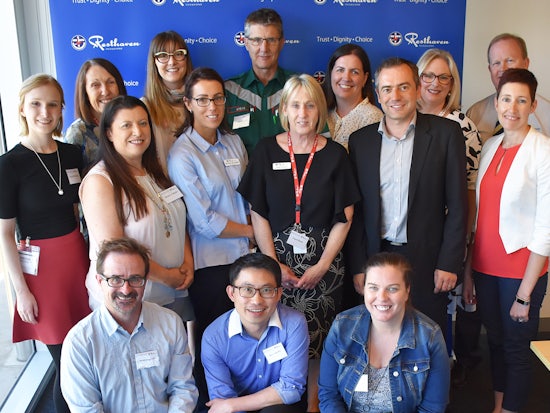Partnership on point for Project PREVENT
Years of collaboration, study and success is behind the initiation of a new project between South Australian aged care provider Resthaven and Monash University called PREVENT.

Project PREVENT is underway (Source: Shutterstock)
Project PREVENT (Pathways to Potentially Preventable Hospitalisations in Residents of Aged Care Services) aims to use previous and new research to develop a clinical tool for identifying risk factors, with the overall goal of preventing hospital admissions of older people living in residential aged care homes.
Executive Manager Residential Services with Resthaven, Tina Cooper, says both the provider and university teams are “genuinely delighted” to work together on this project and that their past successful research projects will play a key role in their new endeavour.
“Our previous research identified that falls and infections were two key areas to review in relation to hospitalisation,” Ms Cooper explains.
“Very few studies have investigated whether an admission to hospital could have been prevented -that’s where Project PREVENT comes in.”
Ms Cooper says that the project and research into this area is much needed due to the trauma having to go to hospital causes older people and their families, adding that it also puts a “burden” on the already stretched health system.
To get the project going, two expert panels convened at the Resthaven Head Office in early February to “advise and inform” the development of the tools required for the research.
Ms Cooper says the panel members consisted of the chief pharmacist from SA Ambulance, a geriatrician, general practitioner, infectious diseases physician, intensive care paramedic, clinical pharmacist, registered nurses, physiotherapists, researchers and consumer representatives.
“Together, we assessed and discussed data from our original 2014 Resthaven/Monash study, optimising the use of medicines in aged care facilities, which gathered data from 383 residents across six Resthaven residential aged care homes,” she says.
“Our subsequent research project, ‘Towards a better understanding of polypharmacy and complex medicine regimen’, investigates factors associated with a complex medicine regimen, and whether this is associated with resident quality of life or the risk of hospitalisation.”
She says this all resulted in the teams finding that around 30 percent of unplanned admissions to hospital are medicine related.
“Using the results from these two previous research projects, the expert panel focused their attention on those residents who had been hospitalised, and discussed the key indicators which might have helped prevent those hospitalisations from occuring,” Ms Cooper continues.
“If the research can identify factors that will assist us in preventing the fall or infection or other contributing factors related to the admission to hospital, it will benefit quality of life outcomes.”
Ms Cooper adds that she feels positive about the outcomes of this project which is set to be complete by the end of the year.
The next step from Ms Cooper and the research team is to finalise an audit tool based on literature review and feedback from the two expert panels that met in Adelaide earlier this month.






















